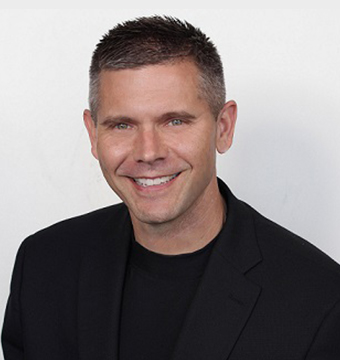
Happy New Year to our EIM tribe! The beginning of a new year is always a good time to reflect on the past year and set goals for the new year, both personally and professionally. I’ve attempted to do that for the last few years in varying forms here and here. I was tempted to make a few predictions about what will happen in the PT industry in 2019, but Heidi did a nice of that in her post last week.
I could also make bold predictions about what will happen in the broader economy and political realm but will decline because I’ve proven to myself over and over that I should never become a psychic. I’m a “glass half full” kinda guy no matter what. I tend to view even the most intense headwinds as a fortunate challenge to be overcome versus an obstacle in my way. The world could be crashing all around us, and I would swear the opportunities had never been brighter. I’m not at all suggesting this approach is entirely a good thing (in fact, I have serious blind spots), just acknowledging that my predictions would undoubtedly be overly optimistic. Instead, I would point you to a “what is going to happen in 2019” blog from one of my all-time favorite blogs from Fred Wilson that I’ve read almost every day since its inception.
Now, unless you’re interested in the technology industry, most of the predictions might not be relevant. However, although I don’t know him personally, I do know from his blogs over the years that he’s not at all the conspiracy theorist type. As a result, his prediction that we will have a different President by the end of 2019 due to a damning Mueller report and subsequent impeachment and resignation captured my attention. Whether this bold prediction comes true is anyone’s best guess, regardless of your politics. However, the accuracy of the prediction is not nearly as interesting to me as how it made me stop and think.
Specifically, I was reminded of a couple of well known “universal laws” in life but ones we easily forget. First, there are plenty of circumstances affecting our lives that are completely out of our control. It’s fair to say that the Mueller report is all but written, and that I will have absolutely no impact on the report or the political process that unfolds in the aftermath of its release…good, bad, or indifferent. I will, at best, be a spectator in the process.
Secondly, I am reminded that there are many events that will occur in 2019 that I don’t currently expect. I would never expect that we would have a different President in 2019, but that’s certainly in the realm of possibility in today’s political environment. Uncertainty is everywhere around us, yet our brains (at least mine) discount the magnitude of the actual uncertainty that exists as a mechanism of self-protection. We simply don’t want to believe that we’re in far less control than we think, so we ignore uncertainty and live our lives in the microcosm of the world in which we can have some influence.
Being right about predictions can certainly result in having a winning strategy, but predictions are more often wrong than right. Change and surprise is an inevitable part of life. Although we can’t predict the future, we can control what we do in the next 60 seconds of our lives. Therein lies the primary motive for this new year’s post. The secret to progress, in my humble opinion, is being able to adapt to change in real time and, more importantly, develop a set of consistent habits that “win” no matter what the change or surprise and no matter if in a personal or professional context.
So, rather than make predictions about the future, I thought I’d focus this post on a few brief tips to develop better habits in 2019. This post from Ryan Holiday discusses key tips on developing habits far better than me. Jump over to his post and then come back, where I summarize by focusing on 3 points of emphasis.
Focus on Micro Habits
I really appreciate Ryan’s advice to “think small, really small.” I refer to these as “micro” habits. Habits are not easily formed, and we can easily fall prey to the tendency to making aggressive and bold new year’s resolutions, only to realize that willpower is a finite resource. We start out strong but quickly run out of gas as our best efforts at self-motivation fail us.
One story that has profoundly influenced and help me remember the importance of daily “micro” habits is the exploration of Amundsen and Scott in 1911. They set out on a race against each other to see who could be the first person to reach Antarctica and the South Pole. After all, it was one of the last un-visited frontiers at the time. Amundsen represented Norway while Scott represented England. The national rivalry was intense. Their goal was exactly the same. Both would be walking on foot for 1400 miles in extremely cold winter weather conditions. To provide some context, 1400 miles is roughly the round-trip distance between Chicago and New York City. Both men also had similar experience, supplies, and a supporting team.
However, the strategy they used in getting from point A to B could not have been more different. Scott’s strategy was to hike as far as possible on the good weather days and rest during inclement weather. Alternatively, Amundsen followed a strategy of consistency, focused on achieving a smaller amount of daily progress (20 miles per day) regardless of weather conditions. Imagine how tempting it must have been for Amundsen’s team to continue hiking on sunny days when the team was physically capable of hiking much further. However, he insisted that his team conserve energy by hiking no more than 20 miles, regardless of weather conditions.
As you might predict, Amundsen’s team ultimately succeeded in the end because they followed a “micro” habit and took smaller but consistent daily action. The moral of the story is that baby steps done every day win the race. In other words, little things matter and what we do every day defines us. No matter how much we debate whether willpower is a finite resource, it’s hard to argue against the power of self-discipline. Whether it’s the lack of exercise, unhealthy eating, too much alcohol, procrastination, or countless other issues, problems like these are rooted in a constraint within the mind, most notably a lack of self-discipline. Self-discipline is incredibly difficulty on a “macro” scale, but the “muscles” can be built slowly over time with “micro” habits in which the sum of the parts is greater than the individual contribution of each.
Identify Keystone Habits
Secondly, focus on identifying “keystone” habits, which are “those habits that lead to the development of multiple good habits. They start a chain effect in your life that produces a number of positive outcomes.” In other words, not all habits are equal. Some are dependent or influenced by others. For example, if I want to lose weight, stepping on the scale without fail every morning is a “keystone” habit that facilitates success at related habits. Simply knowing that the scale says the same thing this morning that it did a week ago serves as a reminder that I should pay closer attention to diet and exercise. I might need separate habits related to diet and exercise, but stepping on the scale is the keystone habit. My strictly following this habit has positive implications and increases my likelihood of achieving my diet and exercise goals.
Focusing on a few keystone habits that can help us “keep it simple stupid” and efficiently and effectively accelerate progress toward our goals. Here’s another good read on keystone habits.
Use Technology
When it comes to habit formation, there are many mobile apps that can help us establish and be accountable to habits. We had some internal discussion among our management team at Confluent over Slack prior to the holidays reviewing some of them, so I thought it might be helpful to pass along a few recommendations you might want to check out:
In closing, it’s difficult to overemphasize the importance of practicing daily what we want to manifest regularly. We should carve out even the smallest amount of time each day to focus on the things that matter most, and the benefits will extend exponentially. My encouragement would be to start with a fewer number of achievable resolutions and commit to being successful at achieving them. One of mine is to brush my teeth in the morning and the evening. I already do this 90% of the time, but establishing this as a habit I measure creates an opportunity for a “small win” every day that can provide positive reinforcement for some of my harder goals. Waiting another day to start won’t help, so don’t waste the opportunity that a new year brings for a fresh start. I look forward to your comments and any other tips or recommendations that have served you well to help you form the best habits and achieve your new year’s resolutions.
As always, we look forward to a terrific 2019 and can’t say thanks enough for being a part of the EIM tribe and joining us on a journey to re-imagine how education is delivered in the physical therapy and other health professions. Don’t hesitate to reach out to me @childsjd on social media, email at john@eimpt.com, or cell at 210-364-7410. Happy New Year!
-John
